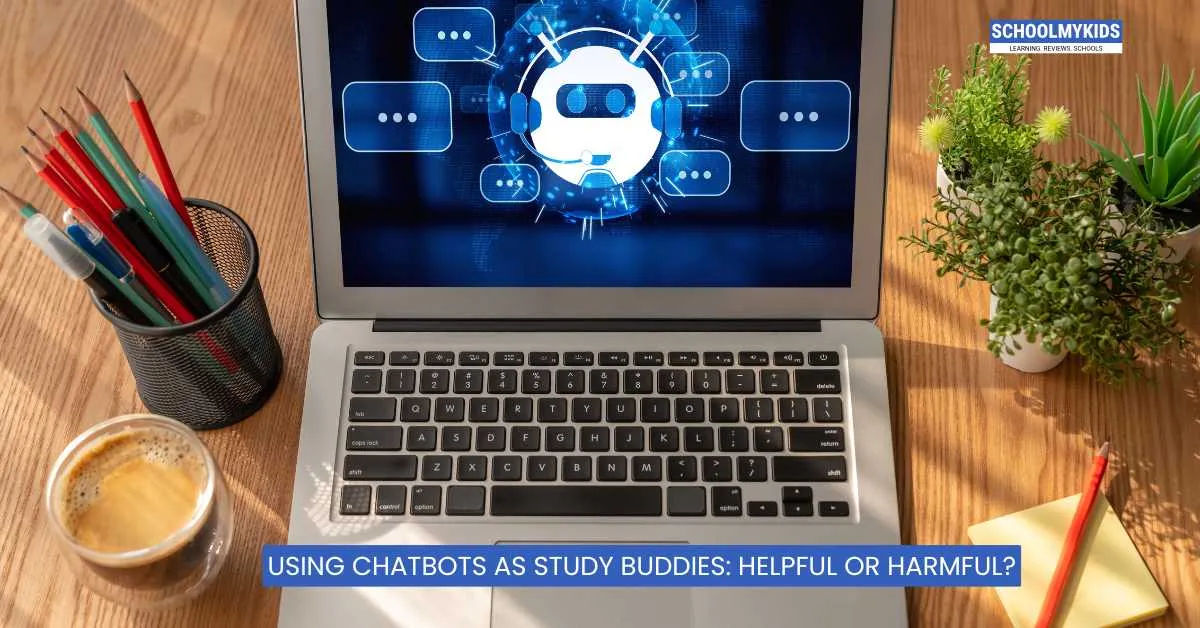Artificial intelligence has infiltrated every aspect of student life, with AI chatbots emerging as increasingly popular study companions. From ChatGPT's new Study Together Mode to specialized educational platforms, these digital assistants promise personalized tutoring available 24/7. But as students embrace AI study buddies, important questions arise about their effectiveness, limitations, and potential impact on learning.
The Rise of AI Study Companions
The landscape of AI-powered learning tools has evolved dramatically, with chatbots moving beyond simple question-answering to interactive study experiences. ChatGPT's Study Together Mode represents this evolution, flipping the traditional dynamic by having the AI ask questions, create quizzes, and guide users through active learning exercises.
Unlike passive learning, where students simply consume information, these AI systems use active recall and Socratic methods to engage learners more deeply. The AI prompts students to recall, apply, and explain concepts rather than just reading or copying answers, potentially leading to better retention and understanding.
Modern AI study features include personalized quiz generation, adaptive difficulty adjustment, real-time feedback and explanations, progress tracking and analytics, and multi-subject integration capabilities.
The Advantages of AI Study Buddies
AI chatbots offer several compelling benefits as study companions. Their 24/7 availability means students can get help whenever inspiration strikes or confusion arises, without worrying about time zones, office hours, or social pressures. This constant accessibility can be particularly valuable for students with non-traditional schedules or those in different geographical locations.
Key advantages include unlimited patience and repetition without judgment, personalized pacing that adapts to individual learning speeds, immediate feedback on practice problems and concepts, cost-effective tutoring compared to human alternatives, and consistent quality without mood variations or personal biases.
The AI's ability to generate endless practice questions and explanations can help students drill difficult concepts until mastery is achieved. For subjects requiring memorization or pattern recognition, this repetitive practice can be invaluable.
Potential Risks and Limitations
Despite their benefits, AI study buddies come with significant limitations and potential risks. One major concern is the accuracy of information – while AI systems are generally reliable, they can occasionally provide incorrect or misleading answers, especially in rapidly evolving fields or nuanced topics.
Critical limitations include potential factual errors or oversimplified explanations, lack of emotional intelligence and motivational support, inability to understand complex learning disabilities or individual needs, risk of creating dependency rather than independent thinking skills, and limited ability to handle truly creative or open-ended problems.
Perhaps most importantly, over-reliance on AI assistance might prevent students from developing crucial problem-solving and critical thinking skills. If students always have immediate answers available, they may lose the ability to struggle productively with difficult concepts – a process essential for deep learning.
The Academic Integrity Question
Using AI study buddies raises complex questions about academic honesty. While using chatbots for practice and concept review is generally acceptable, the line becomes blurry when AI generates solutions to assignments or helps with take-home exams.
Ethical considerations include distinguishing between legitimate study help and prohibited assistance, understanding institutional policies on AI use, maintaining transparency about AI involvement in learning processes, and ensuring that AI assistance enhances rather than replaces genuine understanding.
Students must navigate these ethical waters carefully, using AI tools to support learning while ensuring their academic work represents their own knowledge and abilities.
Optimal Use Strategies
The most effective approach involves using AI chatbots strategically rather than comprehensively. AI excels at certain types of learning support while falling short in others, and recognizing these differences is crucial for optimal results.
Best practices for AI study buddies:
- Concept clarification when initial explanations are unclear
- Practice problem generation for drill and repetition
- Study schedule organization and progress tracking
- Quick fact checking and basic information retrieval
- Brainstorming and idea generation for creative projects
Students should avoid using AI for complex reasoning tasks, original research, creative writing assignments, or as a replacement for reading primary sources and developing their own analytical skills.
Complementing Human Learning
The most successful students use AI chatbots as supplements to, not replacements for, traditional learning methods. Human instructors, classmates, and tutors provide irreplaceable elements like emotional support, complex problem-solving guidance, and nuanced feedback that AI cannot replicate.
Effective integration strategies include using AI for initial concept review before seeking human help, combining AI-generated practice with instructor-led discussions, leveraging AI for routine tasks while reserving complex problems for human guidance, and maintaining a balance between digital and interpersonal learning experiences.
Future Developments and Trends
AI study companions are becoming increasingly sophisticated, with improvements in natural language processing, subject-specific expertise, and educational methodology. Future developments may include better integration with learning management systems, improved emotional intelligence, and enhanced ability to identify and address individual learning gaps.
Emerging trends include sentiment-aware chatbots that can detect frustration or confusion, voice-activated study sessions for hands-free learning, integration with augmented reality for immersive educational experiences, and collaborative AI that can facilitate group study sessions.
Making Informed Decisions
Students considering AI study buddies should evaluate their individual learning styles, academic goals, and specific subject matter needs. Some learners thrive with AI assistance, while others may find it distracting or counterproductive.
Evaluation criteria include personal learning preferences and styles, specific subject matter requirements, available alternatives and resources, institutional policies and expectations, and long-term educational and career goals.
The key is treating AI chatbots as tools rather than solutions – powerful resources that can enhance learning when used thoughtfully and appropriately.
The Bottom Line
AI study buddies represent a significant evolution in educational technology, offering both exciting opportunities and important challenges. When used strategically, they can provide valuable support for learning and skill development. However, they work best as complements to, rather than replacements for, traditional learning methods and human interaction.
The most successful students will be those who learn to leverage AI tools while maintaining critical thinking skills, academic integrity, and genuine understanding. The goal isn't to eliminate struggle from learning, but to use AI assistance to make that struggle more productive and effective.
As this technology continues to evolve, students who develop thoughtful, ethical approaches to AI integration will be best positioned to benefit from these powerful new learning tools while avoiding their potential pitfalls.








Be the first one to comment on this story.